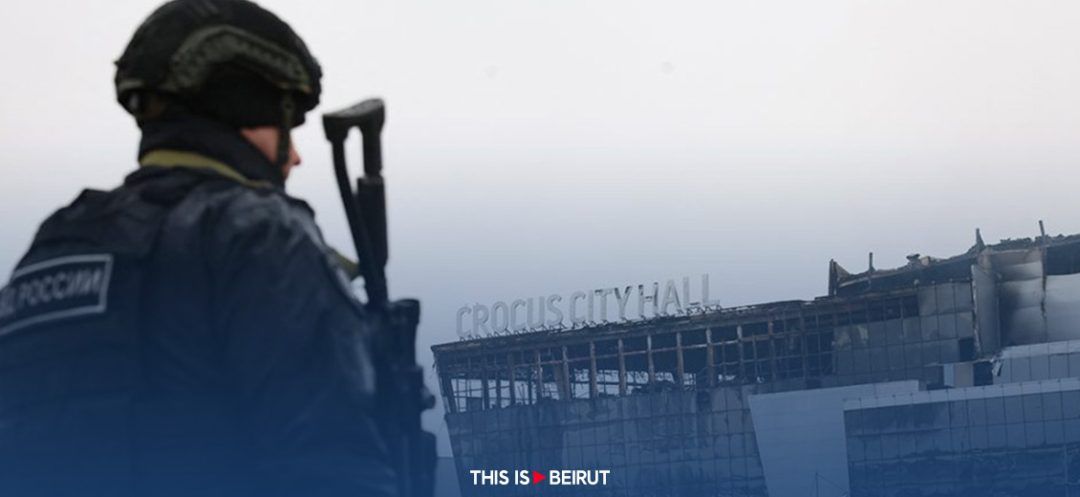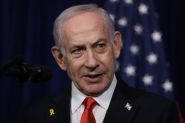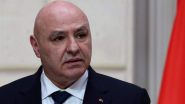- Home
- Middle East
- Moscow Attack: A Credible Claim

The terrorist attack that claimed around 140 lives on Friday, March 22, on the outskirts of Moscow at the Crocus City Hall, has fueled numerous conspiracy theories regarding the involvement of foreign intelligence services. Vladimir Putin continues to hold Ukraine responsible, where the attackers allegedly planned to flee, according to the Kremlin. However, the perpetrated attack aligns perfectly with the ideological logic of a terror organization.
An operation potentially involving the CIA, Mossad or even the Ukrainian SBU. In the wake of the terrorist attack that claimed the lives of nearly 140 individuals in Moscow on March 22, social media platforms quickly flooded with various theories speculating about the possible role of foreign intelligence services. Within hours of the tragic event, a claim emerged from the Islamic State in Khorasan Province (IS-K), a branch of the organization founded in 2015 and known for its significant presence in Afghanistan, Iran and the former Soviet republics of the region. However, doubts persist among many regarding the credibility of this claim, especially because four days after the attack, Vladimir Putin has yet to comment on the Islamic State's claim, further fueling speculation and skepticism.
A Timeserving Claim?
The first claim of the Crocus City Hall attack was published by the Amaq News Agency, officially affiliated with the Islamic State, and then diffused on supportive Telegram channels. Shortly after, images of the perpetrators began to surface, along with particularly violent videos, once again through the organization's official channels. This pattern of claiming responsibility, typical of the Islamic State, leaves little room for doubt.
Claiming attacks it did not instigate is unusual for the jihadist group, according to several experts. The Islamic State is not opportunistic; except for a few attacks in Iran several years ago, the organization has never claimed responsibility for an attack it did not carry out.
On April 3, 2017, a suicide bomber detonated explosives in the Saint Petersburg metro, resulting in 15 deaths and 53 injuries. Authorities' attention turned to the Islamic State as the organization had recently released propaganda videos urging attacks on the land of the Tsars, yet no claim from the group ensued. Affiliated with Al-Qaeda, the Imam Shamil Brigade eventually claimed responsibility for the attack three weeks later. Conversely, IS-K had claimed responsibility for the September 5, 2022 attack on the Russian embassy in Kabul, which resulted in the deaths of between 6 and 10 individuals, according to sources on the ground.
While the bloodthirsty Islamic State organization has become less visible on the international stage since the collapse of its caliphate in 2019, its Khorasan branch has grown in power, becoming the most feared. "The Islamic State's Khorasan branch's terrorist plots should be considered the organization's greatest global threat today," a report from the Washington Institute for Near East Policy states, published two days before the Crocus City Hall attack. The report also highlights the significant presence of Tajik jihadists, some of whom were implicated in the Moscow incident, "becoming key players in the organization's terrorist network" as they were involved in one-third of the group's attacks in 2023.
4500 Russian Jihadists in Syria
The March 22 tragedy, etched deeply in the collective memory of Russian society, came as no surprise to experts on jihadist matters — and it shouldn't have been surprising to Russian authorities either. Two weeks prior to the attack, two significant warnings reached Moscow. On March 7, 2024, the Russian Federal Security Service (FSB) claimed to have foiled an IS-K plot targeting a synagogue. Simultaneously, US authorities cautioned their citizens residing in Russia about an "imminent" threat of an attack in Moscow, specifically urging them to avoid concert venues. The Kremlin dismissed this alert as "pure blackmail," denouncing it as an act of destabilization.
Beyond these recent developments, the Russian government has long been aware that it is a target of the terrorist organization. Established in 2006, the Islamic State reached its peak between 2014 and 2017 when it controlled a vast territory spanning Syria and Iraq. The Russian intervention in support of Bashar al-Assad’s regime from 2015 onwards played a significant role in the collapse of the caliphate. While the international collective memory may have somewhat overlooked Russia's role in Syria and its atrocities against the civilian population, including targeting hospitals, the memory remains vivid for any jihadist organization that capitalizes these atrocities for propaganda’s sake.
According to official figures, around 4,500 Russians and 5,000 fighters from former Soviet republics had joined the conflict in Syria, making Russian the second most spoken language within the organization, after Arabic. In February 2017, during a meeting with military personnel, Putin stated, "We understand the significant threat that this terrorism hotspot on Syrian territory represents to us and to Russia."
Several Battlefields
As per the ideology of the Islamic State, the United States, Iran or Russia are viewed merely as nations of apostates. To assume that the organization's hostility towards these countries differs would be wrong. All of them are on the same footing, with Russia being at the top of the list, as it persists on confronting ISIS directly wherever it may be, mainly through the Wagner mercenary group. It does so initially in eastern Syria, but also in Sahel countries and even in Mozambique, where a jihadist insurgency affiliated with ISIS temporarily took control of cities in 2020.
Experts in jihadist matters suggest that the various conflict zones between the terrorist organization and Russia fuel a vengeful spirit within ISIS. In its Khorasan branch, comprised of various ethnic groups with historical ties to the former USSR, the Chechen wars and the Afghan conflict serve as additional motivations to target Russia. While the Crocus City Hall attack may have surprised in its magnitude and unexpectedness, it fits within a series of ISIS assaults aimed at the Russian population. This includes the crash of Metrojet Flight 9268, which killed 224 Russian tourists returning from vacation in Egypt. This incident marked the first successful aircraft bombing since September 11, 2001, with the plane disintegrating over the Sinai Desert after an explosive device concealed in a soda can detonated. Additionally, several other attacks claimed by the Islamic State targeted Russia in 2016, 2017 and 2018.
'The Kremlin’s Failure'
Despite the history between the Islamic State and the Russian state, Vladimir Putin continues to promote an accusatory discourse against Ukraine and the Western world, openly waging war against them. "The Kremlin views the world solely through the lens of anti-Western hysteria and disdain," says Philip Wasielewski, director of the Center for Intelligence and Unconventional Warfare Studies at the FPRI (Foreign Policy Research Institute).
Robert E. Hamilton, head of research within the Eurasia program at the same institute, believes that Russian authorities' statements also serve to conceal the shortcomings of their intelligence services. "Involving Ukraine and the West in the attack also diverts attention from the Kremlin's failure to prevent it," he asserts.
Several online commentators are casting doubt on the credibility of the Islamic State's claim in Khorasan in light of Russia's recent stance in favor of a Palestinian state and its sharp criticism of Israel. Putin has carefully cultivated an image as a defender of the Palestinian cause to strengthen his position as an alternative to a Western world increasingly grappling with moral dilemmas. This narrative, skillfully fueled by Moscow, must no longer hold sway, as it risks failing to fully comprehend the danger posed by the Islamic State and its ideology.
An operation potentially involving the CIA, Mossad or even the Ukrainian SBU. In the wake of the terrorist attack that claimed the lives of nearly 140 individuals in Moscow on March 22, social media platforms quickly flooded with various theories speculating about the possible role of foreign intelligence services. Within hours of the tragic event, a claim emerged from the Islamic State in Khorasan Province (IS-K), a branch of the organization founded in 2015 and known for its significant presence in Afghanistan, Iran and the former Soviet republics of the region. However, doubts persist among many regarding the credibility of this claim, especially because four days after the attack, Vladimir Putin has yet to comment on the Islamic State's claim, further fueling speculation and skepticism.
A Timeserving Claim?
The first claim of the Crocus City Hall attack was published by the Amaq News Agency, officially affiliated with the Islamic State, and then diffused on supportive Telegram channels. Shortly after, images of the perpetrators began to surface, along with particularly violent videos, once again through the organization's official channels. This pattern of claiming responsibility, typical of the Islamic State, leaves little room for doubt.
Claiming attacks it did not instigate is unusual for the jihadist group, according to several experts. The Islamic State is not opportunistic; except for a few attacks in Iran several years ago, the organization has never claimed responsibility for an attack it did not carry out.
On April 3, 2017, a suicide bomber detonated explosives in the Saint Petersburg metro, resulting in 15 deaths and 53 injuries. Authorities' attention turned to the Islamic State as the organization had recently released propaganda videos urging attacks on the land of the Tsars, yet no claim from the group ensued. Affiliated with Al-Qaeda, the Imam Shamil Brigade eventually claimed responsibility for the attack three weeks later. Conversely, IS-K had claimed responsibility for the September 5, 2022 attack on the Russian embassy in Kabul, which resulted in the deaths of between 6 and 10 individuals, according to sources on the ground.
While the bloodthirsty Islamic State organization has become less visible on the international stage since the collapse of its caliphate in 2019, its Khorasan branch has grown in power, becoming the most feared. "The Islamic State's Khorasan branch's terrorist plots should be considered the organization's greatest global threat today," a report from the Washington Institute for Near East Policy states, published two days before the Crocus City Hall attack. The report also highlights the significant presence of Tajik jihadists, some of whom were implicated in the Moscow incident, "becoming key players in the organization's terrorist network" as they were involved in one-third of the group's attacks in 2023.
4500 Russian Jihadists in Syria
The March 22 tragedy, etched deeply in the collective memory of Russian society, came as no surprise to experts on jihadist matters — and it shouldn't have been surprising to Russian authorities either. Two weeks prior to the attack, two significant warnings reached Moscow. On March 7, 2024, the Russian Federal Security Service (FSB) claimed to have foiled an IS-K plot targeting a synagogue. Simultaneously, US authorities cautioned their citizens residing in Russia about an "imminent" threat of an attack in Moscow, specifically urging them to avoid concert venues. The Kremlin dismissed this alert as "pure blackmail," denouncing it as an act of destabilization.
Beyond these recent developments, the Russian government has long been aware that it is a target of the terrorist organization. Established in 2006, the Islamic State reached its peak between 2014 and 2017 when it controlled a vast territory spanning Syria and Iraq. The Russian intervention in support of Bashar al-Assad’s regime from 2015 onwards played a significant role in the collapse of the caliphate. While the international collective memory may have somewhat overlooked Russia's role in Syria and its atrocities against the civilian population, including targeting hospitals, the memory remains vivid for any jihadist organization that capitalizes these atrocities for propaganda’s sake.
According to official figures, around 4,500 Russians and 5,000 fighters from former Soviet republics had joined the conflict in Syria, making Russian the second most spoken language within the organization, after Arabic. In February 2017, during a meeting with military personnel, Putin stated, "We understand the significant threat that this terrorism hotspot on Syrian territory represents to us and to Russia."
Several Battlefields
As per the ideology of the Islamic State, the United States, Iran or Russia are viewed merely as nations of apostates. To assume that the organization's hostility towards these countries differs would be wrong. All of them are on the same footing, with Russia being at the top of the list, as it persists on confronting ISIS directly wherever it may be, mainly through the Wagner mercenary group. It does so initially in eastern Syria, but also in Sahel countries and even in Mozambique, where a jihadist insurgency affiliated with ISIS temporarily took control of cities in 2020.
Experts in jihadist matters suggest that the various conflict zones between the terrorist organization and Russia fuel a vengeful spirit within ISIS. In its Khorasan branch, comprised of various ethnic groups with historical ties to the former USSR, the Chechen wars and the Afghan conflict serve as additional motivations to target Russia. While the Crocus City Hall attack may have surprised in its magnitude and unexpectedness, it fits within a series of ISIS assaults aimed at the Russian population. This includes the crash of Metrojet Flight 9268, which killed 224 Russian tourists returning from vacation in Egypt. This incident marked the first successful aircraft bombing since September 11, 2001, with the plane disintegrating over the Sinai Desert after an explosive device concealed in a soda can detonated. Additionally, several other attacks claimed by the Islamic State targeted Russia in 2016, 2017 and 2018.
'The Kremlin’s Failure'
Despite the history between the Islamic State and the Russian state, Vladimir Putin continues to promote an accusatory discourse against Ukraine and the Western world, openly waging war against them. "The Kremlin views the world solely through the lens of anti-Western hysteria and disdain," says Philip Wasielewski, director of the Center for Intelligence and Unconventional Warfare Studies at the FPRI (Foreign Policy Research Institute).
Robert E. Hamilton, head of research within the Eurasia program at the same institute, believes that Russian authorities' statements also serve to conceal the shortcomings of their intelligence services. "Involving Ukraine and the West in the attack also diverts attention from the Kremlin's failure to prevent it," he asserts.
Several online commentators are casting doubt on the credibility of the Islamic State's claim in Khorasan in light of Russia's recent stance in favor of a Palestinian state and its sharp criticism of Israel. Putin has carefully cultivated an image as a defender of the Palestinian cause to strengthen his position as an alternative to a Western world increasingly grappling with moral dilemmas. This narrative, skillfully fueled by Moscow, must no longer hold sway, as it risks failing to fully comprehend the danger posed by the Islamic State and its ideology.
Read more




Comments